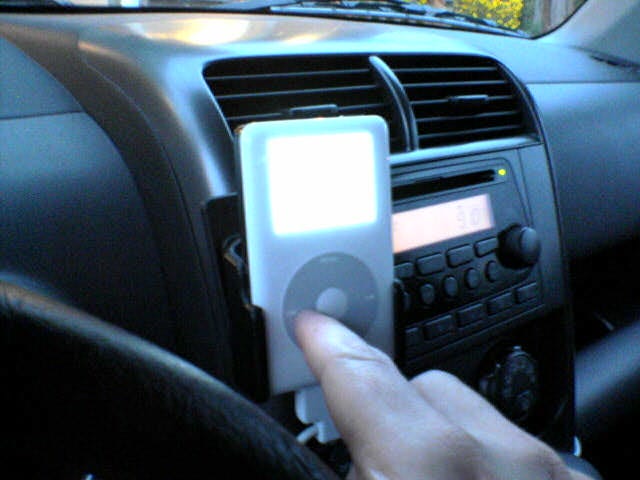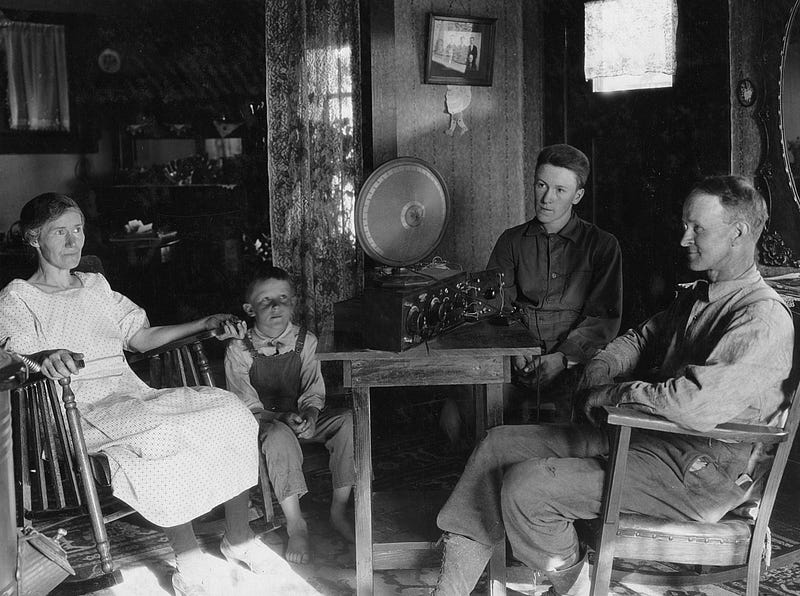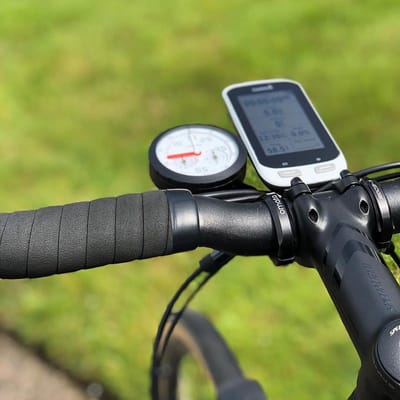Ten Years of Podcasting: Fighting Human Nature

Podcasting started about ten years ago and I remember watching Dave Winer and Adam Curry devise a way in public, in near real-time, to transfer what were essentially voicemail mp3 files to one another, but time-shifted because Winer was in the Bay Area while Curry was in Amsterdam. After a few weeks of tinkering I remember one of them saying they powered up an iPod in the morning and a file was automatically there and it all worked! And thus an industry was born.
There was a lot of hype in the early days, and mostly I remember it being about how podcasting could someday replace radio. I always wished for a pause button on my radio and thought it was a good enough excuse for a revolution. But it was never really easy to use, based on geeky things like RSS/XML files you pass between computers, and required special software right off the bat in order to work. I remember being excited at the prospects and listening to a few early podcasts on Odeo, but it didn’t really “take” for me until Jesse Thorn came along and brought his college radio show to podcasting and started a bunch of additional shows.
When I compare podcasting to blogging, I think about how blogging started blossoming online around 1999, tools sprang up soon after, and from about 2001–2004 I’d say it exploded and hit the mainstream in a big way. Blogging and Podcasting both began with early authors being technologists but both eventually saw more mainstream and famous authors join their ranks. Blogging took off in just a couple years, but why did it take Podcasting ten years before the mainstream noticed its existence?
The Technology Gap
Podcasting has two achilles heels. One of them is technology, of overcoming technological challenges that keep podcasts from being easy to use for the vast potential audience. It’s a big one.
Subscribing to shows even ten years later is a bit of a chore. You can surf podcasts on your computer, search for subscribe links, and toss those into iTunes (if you use the podcast portion of iTunes), but if you’re using a dedicated app on your phone, you either copy/paste subscribe links on the web to the app or search within the app itself, both clunky options.
Next, you need a place to listen to them, and for most Americans, killing time listening to podcasts in a car is a great place. To give you some idea of what early podcasting was up against, here is me using an iPod in my car in 2004:

I have a custom mount on my dash, with an iPod sleeve attached. Then I’m powering the iPod with a special charge cable that also incorporated an audio pre-amp, which required another mini-headphone cable to an aux-in jack on my stereo (having an aux-in jack in your stereo was cutting edge in a 2004 car).
There are lots of “Podcasting is Back!” articles going around describing a resurging interest in podcasts and I feel podcasting is clearing having a moment but I agree with Marco here that some of that is due to technology catching up. Technology in cars moves slowly due to the long development cycles of designing, building, and selling cars. So even though bluetooth audio started becoming available 4–5 years ago in many cars, it took until now before there was a critical mass of vehicles that people could easily send audio from their phones to their car. Podcasts are perfect for listening to in a car, and it took quite a number of years before people that didn’t have dedicated cables, mounts, and special options in their car could use them.
And while the technology gap in cars is largely solved, there are still technology challenges at home. How many people reading this now could listen to a podcast in their car, drive up to their house with five minutes left in the show, then effortlessly continue playing the podcast on speakers in their living room? There are bluetooth and AirPlay-enabled home audio systems, but they’re not quite cheap and ubiquitous, so there is still work to do there.
Achilles Heel #2: Podcasting’s Social Problems
Podcast listening as it stands today is intensely personal. Every podcast app I’ve used is designed for a single user. You maintain your own personalized subscription lists, your stop points in each show are saved to your own device, and you listen to shows by yourself before deleting them when complete. Heck, most of them are heard in headphones, which are tiny speakers you stick inside your ears for you and only you to listen to — it’s intensely personal.
Humans are social animals. We like to share experiences together, talk about shared individual experiences, and learn from each other through experiences. The way podcasts are consumed and software is written for the activity seem at great odds with how people naturally behave.
In my mind, I picture sitting in a dark room with headphones, cut off from everyone else in my home, listening to a podcast. Later, I might wander online to find somewhere to talk about the show I just heard, but it’s not easy to find other listeners, all sitting in dark rooms with their own devices and headphones. For most shows, there’s no place to do that.
I can count the number of times I’ve listened to a podcast with another person present on one hand. Usually it was a roadtrip where we both agreed to stop talking to one another for a while (also anti-social!). Many years ago, on family roadtrips we’d play audiobooks on CDs in the car for everyone to hear, but it’s pretty rare for me to do that today.
It wasn’t always like this of course, everyone can picture families crowded around a large radio in the early 20th century to listen to news and shows together.

So how do we make podcasting more in line with human social nature?
Bridging the Social Gap
Podcasting feels like an un-optimized problem, and I don’t mean it could be better optimized, I mean it feels like so many parts of the process of finding, listening, and reacting to podcasts has never been optimized. I don’t want to sound like a guy that sends in armies of MBAs to micromanage things, but there are a lot of opportunities to improve podcasting.
In order to really take podcasting to the next level, the natural social habits of people needs to be included in how they are found, downloaded, listened to, and discussed afterwards. New approaches, new software, and a new frame of mind will be required to do it. What follows are a bunch of ideas on how each anti-social aspect of podcasting could be improved.
Subscriptions
Step Zero of getting started listening to podcasts is subscribing to a show and it’s a slow, laborious process that new users have to suffer through.
Subscribing to a podcast needs to be as easy as possible. The ideal scenario would be finding out about a new podcast, finding the site for it, and clicking a subscribe link that would one-click add it to whatever podcast app you use on all your devices. It’s fairly clunky now and usually requires a few steps. Perhaps a new default url scheme could solve this (podcast://path_to_feed.xml) so browsers and tools could capture those feed links and add them automatically?
Talking Podcasts
Every podcast should have a website and every episode should have a place to discuss it with other listeners. Every podcast has the potential to be a community and the best podcasts foster communities either in their own forums, in blog comments, or even in real-life gatherings like live tapings and/or tours.
Running and maintaining a helpful, smart community isn’t easy and it’s a lot of work, but your feed should link directly to a place to do it, and even if you’re simply policing some blog comments, it’s work worth doing.
I found this to be such a lacking feature of podcasts I listen to that I helped build a podcast fan listening community at MetaFilter solely for this purpose. It’s new, but it’s worked out pretty well so far and it isn’t out of the realm of possibility that podcast hosts could run something similar for their audience directly.
Optimize What’s Already There
Proper podcast RSS feeds have a boatload of potential embedded data, but after looking at hundreds of popular show feeds I’ve found them barely being used. Every episode in a show’s feed can have a URL attached, and ideally that should point to a podcaster’s site where people can read show notes and interact with other fans. More than half the feeds I find lead to generic Libsyn pages instead of their own sites (many podcasters use outside hosting services like Libsyn, feeds need to be customized for each podcaster’s chosen CMS).
Show notes are an important aspect of my favorite shows (usually a couple paragraphs describing what is covered in the episode, along with links to any outside sites or resources mentioned), but few shows have figured out how to embed them in each podcast file, and podcast clients often hide that data (in my own favorite app I have to click a menu option to see the information), and it’s a shame for both podcasters and fans. In my rough survey of popular podcasts, the ones hosted on Squarespace have the most feature-filled feeds and some podcasters use those features to their advantage.
Sharing Podcasts
You can easily copy any text in any article or web page and tweet about it or blog it with a full quotation. The very best bits of TV and Movies can be clipped and uploaded to YouTube to be shared. You can’t easily say “check out the 30 second clip here from the 37th minute of this hilarious podcast” using existing tools, and that needs to change.
Podcasts are usually large mp3 files but mobile apps could offer share options that give you a scrubber to highlight the audio you want to share, create a short clip, and make that shareable and embeddable in tweets, facebook, and blog posts.
There are loads of similar tools for other media, but one recent example is GIFYouTube, which lets you load any YouTube clip, select a portion you like, and outputs a nice animated GIF converted from the video. I could imagine a similar toolset for scrubbing through audio and sharing the results.
Let’s look at my favorite podcast Roderick on the Line. Each episode is a bit over an hour long, and there are 134 episodes. If I tell you it’s good and you should listen, where do you start? It’s an impenetrable amount (~200 hours at this point?) of content. I wish it was super easy to clip out the 90 best seconds of the last episode or create a Best of 2014 Compliation from the past episodes. I wish people could make supercuts of every time John Roderick mentioned grackles or coughed into the microphone.
Robust, but simple to use “clip and share” features should be the cornerstone of new podcast tools, as they would enable millions of listeners to become the best kinds of ambassadors for every show, helping podcasters gain even more new fans through sharing the best bits of any episode.
Transcribe Away
Real-time transcription much like YouTube’s automatic transcription feature would not only make more accessible versions possible for those web users that can’t process audio files, but could also make “supercut” style edits possible by offering searchable text for every minute of podcast audio. Want every mention of a word from a podcast’s 100 episodes? That would be fairly easy if there were time-stamped transcripts available.
Group Listening
Americans used to sit around electronic boxes listening to radio dramas and we need to figure out ways to let that happen again. Make old timey art deco-inspired Jamboxes? Have local listening parties for fans organized by podcasters on Meetup.com? Whatever the spark, it feels like a problem waiting for the right idea to solve.
Multi-user Podcast Software
My personal podcast software of choice is Instacast, which runs as both an iOS app on my phone as well as a desktop app on my iMac, and thanks to their cloud service, I can keep both instances perfectly in sync. But it’s still all my own personal podcast tracking. Do any podcast apps support group usage?
Imagine my partner and I both listen to different podcasts but share listening to Serial. I could imagine an iOS podcast app that managed my podcasts but also let me know which episodes friends/family (that agreed to share this info) had also completed. I won’t talk about Episode Three since I can see she is still working on Episode Two.
I think about how my living room contains a TiVo that I share with the rest of the family. Everyone tracks their own shows in one shared feed, I can see which episodes are new, and if we don’t watch them together, I usually have to ask before deleting. Podcast software could work a lot like this plus add read status for each user. Apps like Avocado let couples share grocery lists, notes, and calendars, and I could see podcast apps working with multiple users in a similar way.
Wisdom of the Crowds
Every social app on my phone connects to a social network that alters how I get to see information, but none of the big podcast apps seem to tap into those.
When I fire up a new podcast app or “search for podcasts” screen, I’d love to see the podcasts most popular with the people I follow on Twitter/Facebook/etc. Of course, sharing my subscription lists with the public (or just friends) would be opt-in, but at this point, I don’t even have the option in any apps I know of. Google Reader used to work like this, if I remember correctly, letting me know which contacts most often subscribed to which blog feeds, and a podcast app could do something similar.
There’s so much confusion around “What Podcasts Should I Listen To?” that every week it seems another major publication is publishing suggested lists of Podcasts, and those lists should also show up in Discovery pages of podcast apps too.
Browsing vs. Subscribing
The current model in podcast apps is you find a show you want to hear, and you subscribe to it. It will instantly start downloading an episode and all future episodes, while showing you a list of all previous ones — that’s a lot of committment if you’re new to the format. I like tools that allow for browsing and I wish podcast apps had more of a focus on sampling new shows instead of only offering long-term committments. I wrote about Huffduffer a couple years ago, which is a way to make piecemeal meta-podcasts on the fly built up from random shows (here’s my feed).
Personally, I like it when new podcasts use Soundcloud for their hosting, because on a desktop computer it means I can easily dip into their archives and play random episodes, scrub to certain segments and get a feel for the show before I subscribe.
I wish podcast mobile apps allowed for sampling before subscribing, and offered up a suggested episodes of random podcasts each week based on my patterns and social connections. An optional Huffduffer-style stream of good episodes my friends have all listened to that are similar to my existing shows I follow.
(NPR One and AGOGO are both great attempts at letting you browse tons of audio)
Conclusion
Podcasting started as a nerdy way to trade files between technologists, and it’s come very far, but at its roots, it’s still a pretty clunky method to collect audio and most podcast clients are glorified file managers. Listening to podcasts is an intensely personal pursuit, but it could also be opened up to easier and better sharing, and help create entire communities around hosts, shows, and episodes in improved ways that are easier than what we have now.
I think Podcasting is in fact hitting a resurgence, but it’s not just about more listeners or high $ show sponsorships. Podcasting’s growth could go so much further if listeners had better tools at their disposal to connect with each other and share their favorite bits.
Bonus
I’m going to experiment with podcasting a bit more (I’ve co-hosted a podcast since 2007) by reading my future Medium posts as a podcast, starting with this one. If you don’t have time to read the above, it’s available as a 14min audio file below:
Update
I wrote a follow-up post to this one, further exploring apps that do things well and other avenues podcasting can grow.
Subscribe to our newsletter.
Be the first to know - subscribe today



